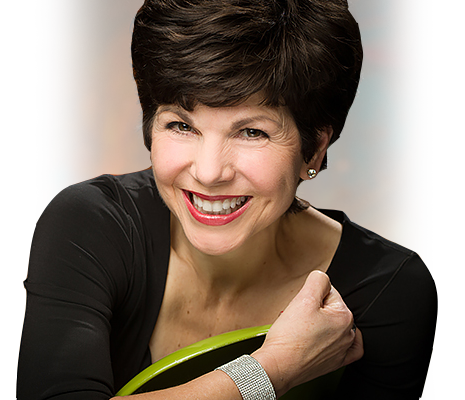
Did you watch the two Democratic presidential primary debates? All four hours of it? I did and for two reasons: 1) to get to know each of the candidates and what they stand for; and 2) to observe debating skills – the do’s and don’ts, what works and what doesn’t. I was not interested in assessing who were the winners/losers of these debates, but rather learning as much as I could about current issues, policy ideas and solutions, and about debating skills.
When I was in high school, I competed in two debates. I lost both of them. The memory of those losses still sticks with me. I vaguely remember one of the debate topics: Euthanasia–the practice of intentionally ending a life to relieve pain and suffering. Based on a random selection at the last minute, I was assigned to argue in favor of euthanasia. That’s a pretty heavy topic for a young teenager to tackle. Based on my research, I tried to prepare my points as best I could. But when the debate was underway, I found myself reacting emotionally to the zingers and unexpected challenges from my opponent in the debate. I guess I wasn’t as prepared as I needed to be. Knowing what I wanted to say wasn’t the same as being prepared for a debate. From this early experience I learned two things: 1) Debating is a specific skill that one must work on; and 2) You must keep your cool during a debate.
Rules of Debating
The highly skilled team of five moderators–Lester Holt, Savannah Guthrie, Rachel Maddow, Jose Diaz-Balart, and Chuck Todd–outlined the rules for these debates at the very beginning and at the half-way period. There were rules for the ten candidates to follow, as well as the audience. But of course, no one stuck to the rules and at times things got out of hand. The moderators did their best to maintain order and decorum, and a sense of humor. At times the atmosphere on stage became uncomfortably combative. But then TV audiences like a good food fight or sparring flare up between players, like they have during ice-hockey games. For me, these moments of hostility are most uncomfortable to observe, and counterproductive.
Of course, it is a bit unusual to have ten people debating at one time. Normally it’s a one-on-one contest. But with so many candidates wanting to participate, the rules have been altered a bit. (Note: this was also the case in the 2016 election when there were many Republican candidates debating.)
Tips for Effective Debating
When researching tips for debating, I found this article from Nullus Maximus. I’m not sure if this is the name or a brand handle of someone. Nullus is the CEO/editor/author at @ZerothPosition. Nullus wrote a blog post providing ten tips for debating (Ten Simple Rules for Debating). These rules are something to keep in mind the next time you get invited to debate or even when you are preparing for a difficult conversation or meeting with someone you view as an “opponent.”
- Pick your battles.
- Engage only those worthy of being engaged.
- Do your research.
- Do not argue to convince the opponent; argue to convince a third party.
- Base your arguments upon logic (logos), not emotion (pathos) or authority (ethos).
- Relentlessly attack logical fallacies and weak arguments.
- Focus on the task at hand.
- Destroy arguments, not people.
- Know when to quit.
- Handle both defeat and victory appropriately.

Eight Lessons Learned
I took pages and pages of notes during these two debates. With so many candidates on the stage, it was hard to keep up with who said what, who did what. Then I switched hats from concerned citizen to executive presentation coach. I wanted to pay attention to the nonverbal and verbal styles of these candidates and how it was influencing their communication and performance in these debates. Here are a few of the lessons that I walked away with. I’m hoping this will help you reflect more deeply on how you show up and behave when having difficult or high-stakes conversations with colleagues, clients, and even family members.
- Don’t get defensive. Don’t be combative. The moment you lose your cool and your passion turns into anger, you’ve lost credibility. We saw this happen several times during both debates. For example, when candidates Julian Castro and Beto O’Rourke went at each other over immigration issues. The media referred this exchanged as sparring. I found this heated exchange unprofessional and unnecessary.
- Stick to your allotted time. Perhaps this was the biggest aggravation of the debates (and indeed of most meetings). They run long. They become Wild Bores, talking endlessly, ignoring the moderators who are clearly telling them “time’s up.” Professionals show their respect of people when they respect their time.
- Sharpen your point. Perhaps the best way to manage your time is to sharpen your point. Debaters have prepared well in advance and have a good idea of the kinds of questions they will be asked. They need to sharpen their answers and find ways to make their point with fewer words.
- Update your message. Don’t be too tied to your “stump speech.” While repetition is needed to seed a message, constant drumming of the same old clichés or tired expressions gets annoying. For example, did you really enjoy hearing Eric Swalwell repeatedly saying “Pass the torch?” Joe Biden clearly didn’t.
- Vocal Awareness matters. Do you have the voice of a leader? Does the sound of your voice reflect the kind of leader that you aspire to be? Are you paying attention to your voice and how it impacts others? We experience some positives and negatives on vocal quality during the debates. Post-debate commentators made mention that candidate Andrew Lang sounded like “a robot.” Of candidate Bernie Sanders, CNN commented, “Rather than passionate, Sanders came off as just plain loud.” Clearly some of these candidates need to work on their vocal awareness. If you need to work on this yourself, I recommend that you check out the Vocal Awareness Institute and the work of vocal coach, Arthur Samuel Joseph.
- Listen and don’t interrupt. Candidate Tim Ryan impressed me with his listening skills. Unlike many of the other candidates that rushed to answer (despite the specific question asked), Mr. Ryan’s facial expression told me that he was interested in understanding the question before he responded. Perhaps the other candidates have other listening styles, but they didn’t look like they valued listening as a skill. How about you?
- Smile / Levity. With so many serious topics and the over-arching sense of competition, it can be exhausting to watch a debate like this. And then you see moments of relief, of levity, of lightheartedness. It comes in the form of a well placed smile, or a lever comment. Like when Elizabeth Warren responded to the moderator’s question of whether or not they had a plan for handling Mitch McConnell. This question was asked of several candidates who responded with long-winded, incomplete answers. Ms. Warren simply responded “I do.” Then she paused, smiled, and let the audience enjoy a moment of relief. Candidate Kamala Harris gave us another wonderful moment of relief when she was able to cut through a series of shouting voices to insist that “America does not want to witness a food fight. They want to know how we’re going to put food on their table.” CNN found this a shining moment for Ms. Harris as she “clearly had that line ready going into the debate but that doesn’t change the fact that she delivered it at the perfect time and without missing a beat.”
- Humility. Perhaps the opposite of being defensive is taking personal responsibility, admitting mistakes, and showing some human vulnerability. We saw the power of this when candidate Pete Buttigieg answered a very difficult question about the recent shooting death of a black man by a white police officer in his town of South Bend, Indiana. Rather than getting defensive or blaming someone or something else, Mr. Buttigieg owned it. CNN reporter Chris Cillizza commented the next day in his column “Buttigieg has lots and lots of natural political ability — and it shone through on Thursday night.”
Shining a Spot Light on Your Potential
Being an effective debater and a confident, persuasive public speaker is certainly not all that we expect of our leaders (governmental or business), but it certainly helps. Being an effective, high-integrity communicator helps to shine a spotlight on your potential. If you want to excel in your career, you still have to do the hard and messy work of building your knowledge and experience. You have to learn how to collaborate and work well with others. You have to tell the truth and act with integrity. And you need to thrive in uncomfortable, unnatural situations like competitive debates.
Who knows, one day you too might want to run for President of the United States. Start getting ready now…


